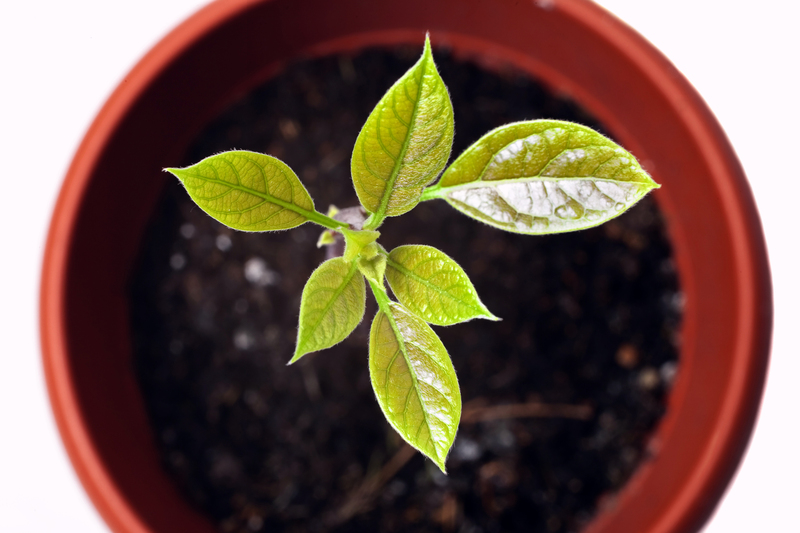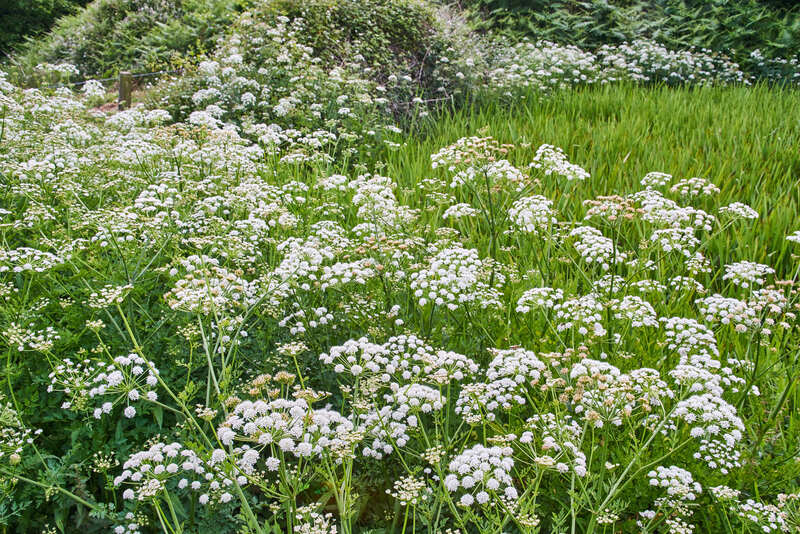Transform Your Yard: 9 Essential Gardening Tips for Starters
Posted on 24/08/2025
Transform Your Yard: 9 Essential Gardening Tips for Starters
Are you dreaming of a lush, vibrant garden oasis in your own backyard but not sure where to begin? Gardening is a deeply rewarding hobby that brings beauty, health, and serenity into your life. Whether you're a complete beginner or have dabbled with potted plants on your balcony, these essential gardening tips for beginners will help you cultivate a thriving outdoor space. In this comprehensive guide, you'll find everything you need to know to transform your yard and build gardening confidence!
Why Start Gardening Now?
Gardening offers a host of benefits for the mind, body, and environment. Spending time with your plants can relieve stress, enhance air quality, and even save you money on grocery bills if you grow your own vegetables. For starters, working in the yard is a great way to connect with nature and boost your mood. If you want to start a garden from scratch, our expert tips will set you up for success, turning your yard into a flourishing paradise.

9 Essential Gardening Tips for Beginners
1. Plan Your Garden Wisely
Before putting a spade in the soil, garden planning is crucial. Consider how much space you have, the sunlight exposure, and your climate zone.
- Sketch out a simple layout of your yard
- Identify the sunny and shady areas
- Decide what type of garden you want: vegetable, herb, flower, or a combination?
- Factor in how much time you can devote to gardening each week
2. Assess Your Soil
Healthy soil is the foundation of every thriving garden. Test your garden's soil to determine its type (clay, sand, silt, or loam), pH, and nutrient levels. Most plants prefer a slightly acidic to neutral pH (6.0-7.0).
- You can purchase a home testing kit or send a sample to your local cooperative extension office for analysis.
- Based on your results, enrich your soil with organic matter such as compost, manure, or peat moss to improve drainage and fertility.
- Mulch your beds to conserve moisture and regulate temperature.
3. Choose Easy-to-Grow Plants
As a beginner gardener, opt for forgiving and low-maintenance plants that tolerate your region's climate and soil conditions. Some best starter plants include:
- Sunflowers and marigolds (for flowers)
- Tomatoes, lettuce, and radishes (for vegetables)
- Basil, mint, and chives (for herbs)
- Native shrubs or perennials--local species usually require less care
4. Master the Art of Watering
Proper watering is one of the most important gardening tips for starters. Over- or under-watering leads to weak roots and unhappy plants. Follow these rules for best results:
- Water early in the morning or late afternoon to reduce evaporation
- Direct water at the base of plants, not the leaves, to prevent fungal diseases
- Check the soil moisture by sticking your finger one inch into the soil; if it feels dry, it's time to water
- Use soaker hoses or drip irrigation to save water and time
5. Practice Regular Weeding
Weeds compete with your plants for nutrients, sunlight, and moisture. Early and consistent weeding is a must for any backyard gardening transformation.
- Pull weeds by hand while they're young; roots come out easily in moist soil
- Use a hoe or weeding tool for bigger patches
- Spread organic mulch to block sunlight and prevent new weeds from sprouting
6. Feed Your Plants Properly
Plants need a balanced diet, too! Fertilize your soil with organic or slow-release fertilizers according to the specific needs of your chosen varieties.
- Vegetables and annuals often require more nutrients than perennials and native species
- Compost is an excellent, natural fertilizer that enriches soil structure and nutrient content
- Always follow label instructions to avoid fertilizer burn
7. Know Common Pests and Diseases
Pests and plant diseases can strike even the healthiest gardens. To protect your hard work, learn to identify and manage the most common culprits in your area.
- Examine your plants regularly for signs of chewed leaves, wilting, or discoloration
- Encourage natural predators like ladybugs, birds, and beneficial insects
- Try organic solutions first, such as neem oil, insecticidal soap, or homemade sprays
- Remove and dispose of diseased leaves promptly to prevent spread
8. Embrace Seasonal Maintenance
A beautiful garden transformation requires care year-round. Set reminders for these seasonal tasks to keep your yard looking its best:
- Spring: Clean up winter debris, prune shrubs, divide perennials, start seeds indoors
- Summer: Deadhead flowers, mulch, regular watering, monitor for pests
- Autumn: Harvest vegetables, plant bulbs, compost fallen leaves, cut back annuals
- Winter: Protect young plants with mulch, plan next season's layout, maintain equipment
9. Prioritize Safety and Sustainability
An eco-friendly, safe garden benefits everyone. Use natural pest controls and avoid harsh chemicals to protect pollinators. Choose drought-tolerant plants to reduce water usage. Keep these additional safety tips in mind:
- Wear gloves to protect your hands from thorns, bites, or irritants
- Use ergonomic tools and proper body mechanics to prevent strain
- Ensure garden paths are clear and safe for walking
- Store tools, fertilizers, and pesticides out of children's reach
More Tips for Transforming Your Outdoor Space
Looking to take your backyard makeover further? Here are a few bonus ideas to inspire a complete garden overhaul:
- Add a focal point: Consider a water feature, birdbath, or colorful bench as a centerpiece
- Install raised beds: Easier on your back and great for controlling soil quality
- Incorporate vertical gardening: Trellises and wall planters save space and add dimension
- Create wildlife habitat: Plant native flowers for pollinators or install bird feeders
- Outdoor lighting: Solar-powered lights make your garden magical at night

FAQ: Gardening for Beginners Explained
What are the easiest vegetables and flowers for beginners?
Some simple and nearly foolproof choices for new gardeners are lettuce, radishes, peas, sunflowers, zinnias, and marigolds. They grow quickly and require minimal care.
How often should I water my garden?
Most gardens benefit from about an inch of water per week. However, check individual plant needs, local rainfall, and weather conditions for precise guidance.
What is the best soil for a starter garden?
Garden soil should be loose, well-draining, and rich in organic matter. Adding compost is a surefire way to boost fertility and texture.
Do I really need to fertilize if I use compost?
Compost feeds soil microbes and adds nutrients, but some vegetables and flowers may need extra fertilizer. When in doubt, a soil test can guide you.
How can I garden in a small yard or on a patio?
Container gardening and vertical gardening are smart solutions for tight spaces, letting you grow herbs, flowers, and even vegetables almost anywhere.
Final Thoughts: Your Yard, Your Sanctuary
Gardening is a journey, not a race. Each tip you implement will get you closer to the dream yard you envision. Start simple, grow at your own pace, and celebrate the progress you make along the way.
Following these gardening tips for starters will help you avoid common pitfalls and cultivate a space you love. With patience, persistence, and a bit of creativity, you'll transform your yard into a beautiful retreat that nourishes your body, mind, and soul.
Ready to get your hands dirty? Grab your gloves and trowel--it's time to start your gardening adventure today!
Latest Posts
Can Your Garden Help Battle Climate Change? Discover How
Discover the Secrets to Creating a Vibrant Herb Garden
Shade Seekers: Rediscovering Dark Corners with Climbers
Transform Your Garden with Expert Seating Arrangement Tips
Creating Adventures: Steps to Building a Child-Friendly Garden

